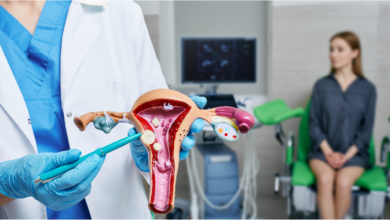
What is sleep apnea?
Sleep apnea is a serious sleep disorder in which breathing is repeatedly interrupted during sleep. These interruptions can disrupt sleep, leading to daytime fatigue, difficulty concentrating, and other health problems.
What are the symptoms of sleep apnea?
Common symptoms of sleep apnea include:
• Loud snoring
• Gasping or choking during sleep
• Restless sleep
• Daytime fatigue
• Difficulty concentrating
• Morning headaches
• High blood pressure
• Dry mouth or sore throat in the morning
Who can suffer from sleep apnea?
Sleep apnea can affect people of all ages, but it’s most common in:
• Men
• Overweight or obese individuals
• People with large tonsils or adenoids
• People with certain medical conditions, such as heart disease, stroke, or diabetes
What are the types of sleep apnea?
There are three main types of sleep apnea:
- Obstructive sleep apnea (OSA): The most common type, caused by a collapse of the airway during sleep.
- Central sleep apnea (CSA): Occurs when the brain fails to send signals to the muscles that control breathing.
- Complex sleep apnea syndrome (CSA): A combination of OSA and CSA.
What diagnostic tests are available for sleep apnea?
A healthcare professional can diagnose sleep apnea based on a thorough evaluation, including:
- Medical history: Assessing sleep habits, symptoms, and potential risk factors.
- Sleep study: A polysomnography test to monitor sleep patterns, breathing, and other vital signs.
What is the treatment for sleep apnea?
Treatment for sleep apnea depends on the severity of the condition and the underlying cause. Common treatments include:
- Continuous positive airway pressure (CPAP): A device that provides pressurized air to keep the airway open during sleep.
- Oral appliances: Custom-made devices that fit over the teeth and jaw to keep the airway open.
- Surgery: In some cases, surgery may be recommended to correct underlying physical problems.
What diet should I follow?
Although there is no specific diet for sleep apnea, maintaining a healthy weight and avoiding excessive alcohol consumption can help reduce the risk of developing or worsening the condition.
Which doctor will treat sleep apnea?
• Pulmonologist
Can sleep apnea be completely cured?
Treatment for sleep apnea depends on the underlying cause and the severity of the condition. While it cannot be completely cured, it can often be managed effectively with proper treatment.





